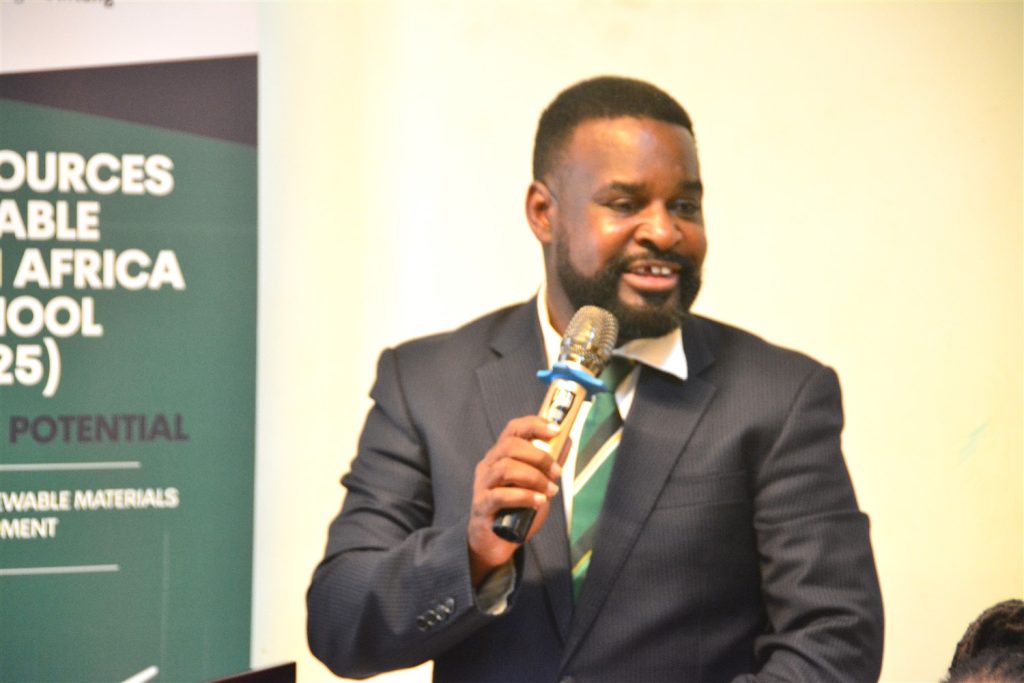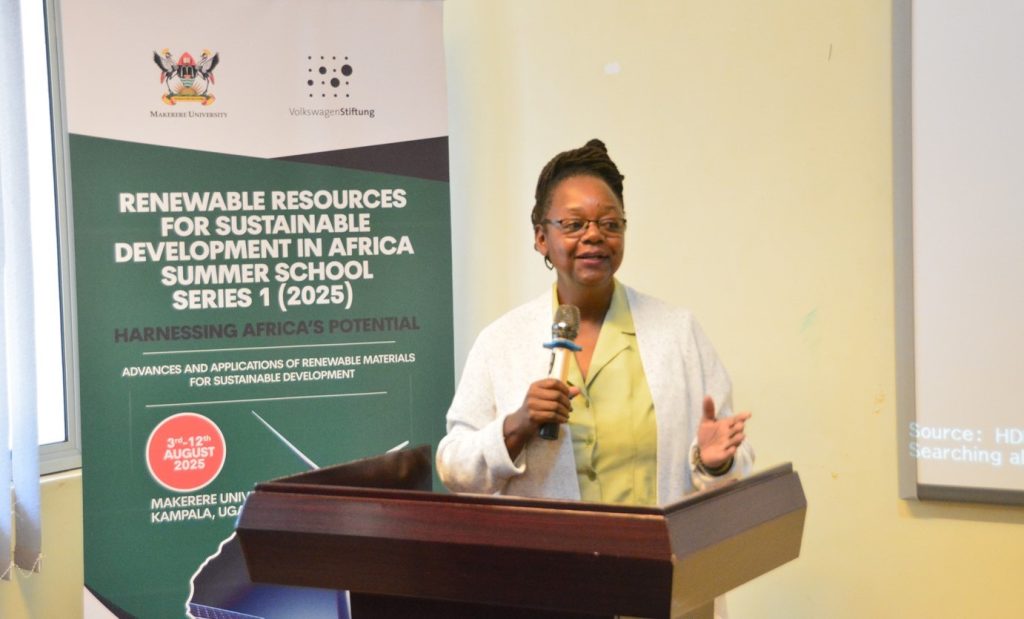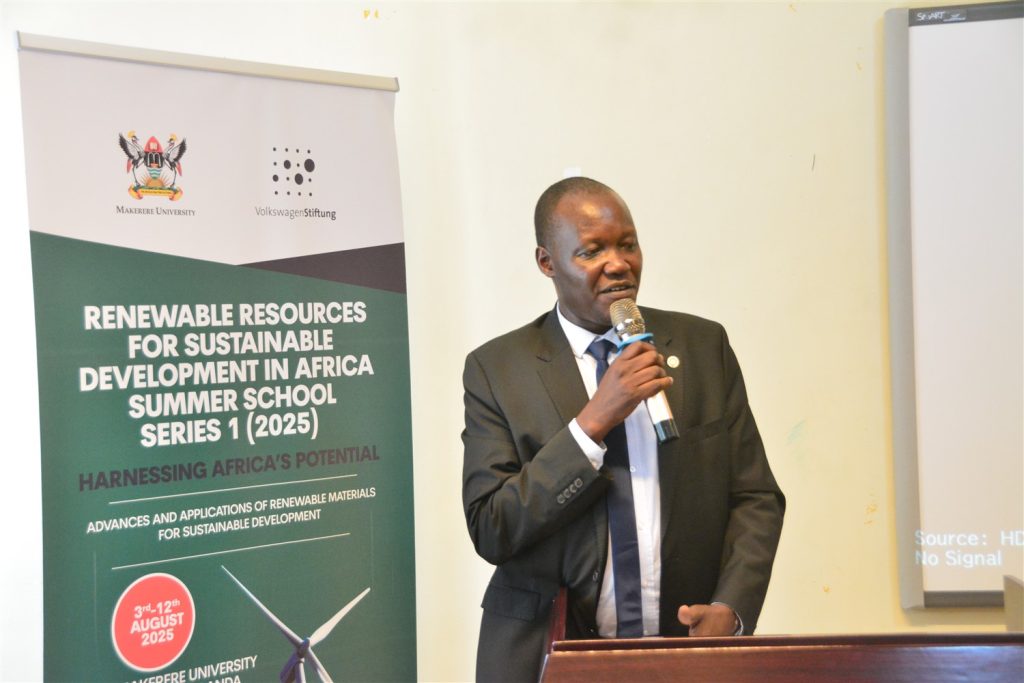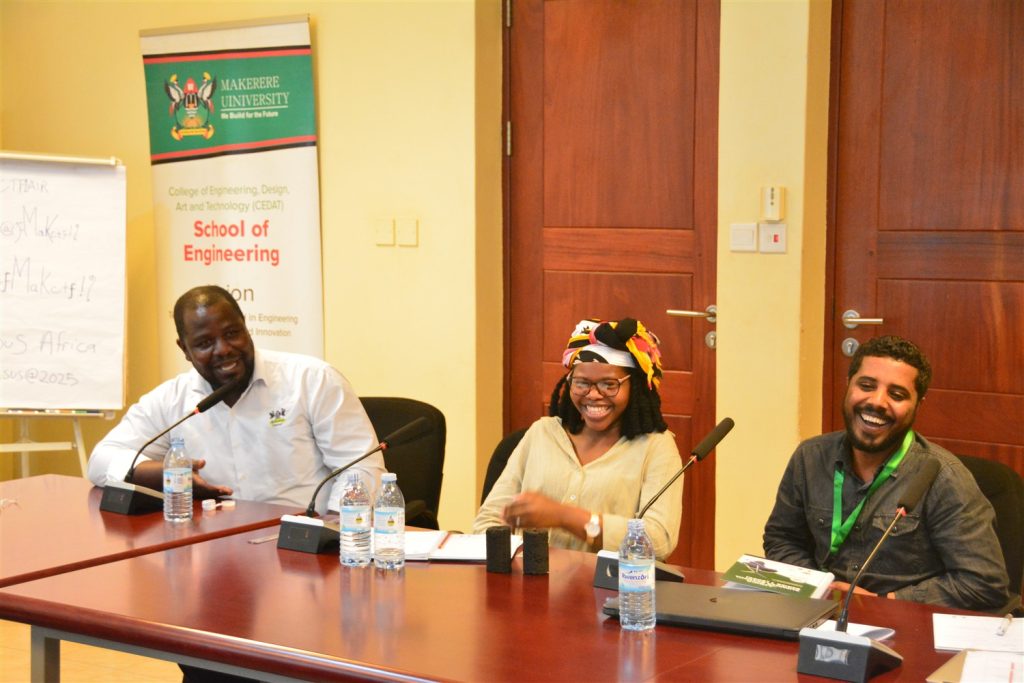The inaugural cohort of the ReSus Summer School Series 2025–2027, held from August 3rd to 12th, 2025, successfully concluded their engagement at Makerere University.Guided by the theme “Renewable Resources for Sustainable Development in Africa (ReSus-AFRICA),” the program convened emerging African researchers to explore innovative, interdisciplinary approaches to sustainability through renewable resources.

Prof. Robert Wamala, Director of Research, Innovations and Partnerships at Makerere University, officiated the closing ceremony held at the Rotary Peace Centre. In his address, he urged participants to carry forward the knowledge, networks, and collaborations forged during the Summer School. “The challenges we face in energy, environment, and resource management demand sustained research, bold innovation, and unwavering commitment,” he emphasized. He encouraged the inaugural cohort to keep the conversations alive and to translate the ideas explored into tangible actions that will positively impact communities and drive transformation across the continent.
Prof. Wamala highlighted the alignment of the Summer School with Makerere University’s vision of becoming a research-led institution. He emphasized that convening early-career scholars from across the continent was a strategic move to strengthen interdisciplinary collaboration, foster South-to-South knowledge exchange, and equip participants with practical skills in renewable resource management. By hosting 21 outstanding PhD students and postdoctoral researchers from various African countries, Makerere University demonstrated its commitment to addressing shared challenges in sustainable development.
It has indeed been an honour for Makerere University to host 21 outstanding PhD students and postdoctoral scholars from across Africa. Your contributions, questions, and shared experiences have highlighted the immense value of bringing together diverse minds to address the complex challenges of sustainable development, noted Eng. Dr. Assoc. Prof Dorothy Okello, the Dean of the School of Engineering. This Summer School has demonstrated the power of collaboration in advancing research that is both locally relevant and globally impactful.

The Dean extended appreciation to Volkswagen Foundation Germany for their generous support towards this project, which, she said, was an investment in Africa’s future, building a kind of researchers and innovators committed to harnessing label resources for the well-being of our people and the planet
She said hosting the summer school was an indication of the commitment to generating knowledge that is relevant, impactful, and globally engaged. By fostering South–South knowledge exchange and equipping participants with practical skills in renewable resource management, we are laying the foundation for transformative research. The ideas cultivated here will feed into Makerere University’s evidence-based contributions to sustainable development and elevate Africa’s voice in global sustainability discourse, she noted.

Assoc. Prof. Peter W. Olupot, Head of the Department of Mechanical Engineering at CEDAT and team lead of the Summer School, shared the long-term vision of the ReSus Summer School Series. He announced that three Summer Schools are planned with the first hosted by Makerere University in Uganda (2025), concluded, to be followed by Nairobi, Kenya in 2026, and concluding in Ivory Coast in 2027. Each edition will focus on a distinct theme, namely renewable materials, renewable energy, and circularity with resource reuse, respectively.
He said that the initiative was made possible through the support of the Volkswagen Foundation, which launched its first funding call for African postdoctoral researchers in 2010. This effort was driven by the recognition that many African scholars were unable to continue their academic careers after completing their PhDs due to limited research funding. The Foundation responded by establishing targeted support for engineering scientists, and with the fund nearing its closure, the Summer School Series was conceived to sustain its legacy.

He said the first summer school attracted participants from Kenya, Uganda, Ethiopia, South Africa, Tanzania, Ghana, Nigeria, and the Ivory Coast. Prof. Olupot emphasized that this diverse representation reflects the program’s commitment to fostering interdisciplinary collaboration and building a robust network of African researchers dedicated to sustainable development.
The Summer School is coordinated by a team of distinguished academics that includes;
- Assoc. Prof. Peter Wilberforce Olupot and Assoc. Prof. Michael Lubwama (Makerere University, Uganda)
- Assoc. Prof. Yetenayet Bekele Tola (Jimma University, Ethiopia)
- Assoc. Prof. Duncan Onyango Mbuge (University of Nairobi, Kenya)
- Prof. Kouassi Dongo (Swiss Center for Scientific Research, Côte d’Ivoire)
